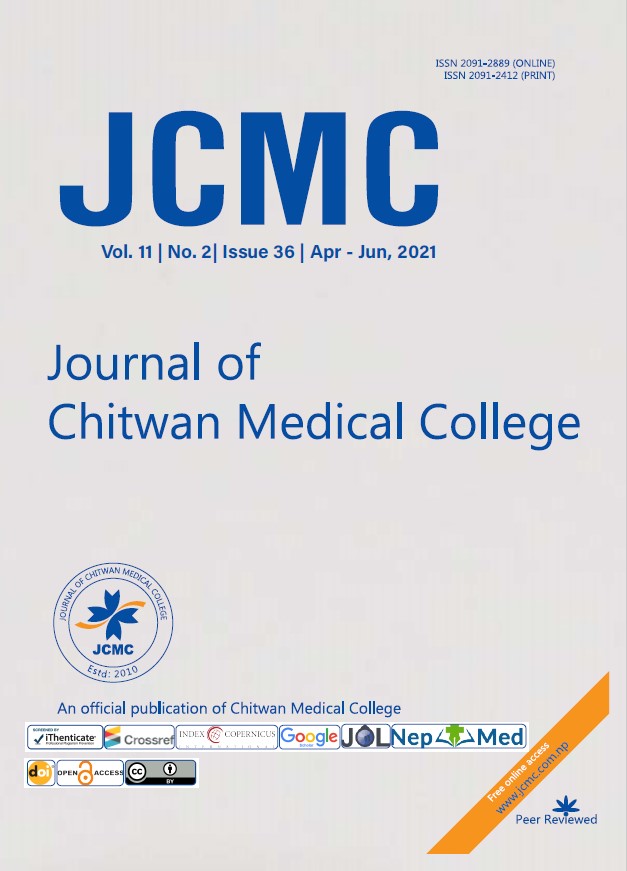Non-lactose fermenters causing urinary tract infection among diabetic patients and its antibiotic sensitivity pattern: a descriptive cross-sectional study
Keywords:
Antibiotic; Non-lactose; Uropathogens.Abstract
Background: Urinary tract infection is the term that involves infection in any part of urinary tract. It is a severe public health problem and is caused by infection with wide range of pathogens. Increased range of recurrence and antimicrobial resistance among uropathogens causes economic burden of these infection. We here intended to find out non-lactose fermenters causing urinary tract infection.
Methods: The descriptive cross-sectional study was conducted at Microbiology laboratory of Kathmandu Medical College and Teaching Hospital between the month of 1st August, 2020 till 30thJanuary, 2021. Clean catch midstream urine was collected in a wide mouthed leak proof sterilized container. Culture and bacterial identification were done using standard microbiological guideline. Antibiotic sensitivity test was performed by Kirby-Bauer disc diffusion method following clinical and laboratory standards institute (CLSI) guidelines.
Results: Among 2645 samples, 418 (15.80%) were positive for bacterial infection. Out of 418 positive cases 52 (12.44%) were non-lactose fermenters. Among non-lactose fermenters causing Urinary tract infection the most common organism was Acinetobacter species 17 (32.69%) which was more sensitive to Ofloxacin 58.82% followed by Gentamycin, Amikacin and Imipenem 47.05%.
Conclusions: The most common non-lactose fermenter causing urinary tract infection among diabetic patients was Acinetobacter species which is more sensitive to Ofloxacin.




